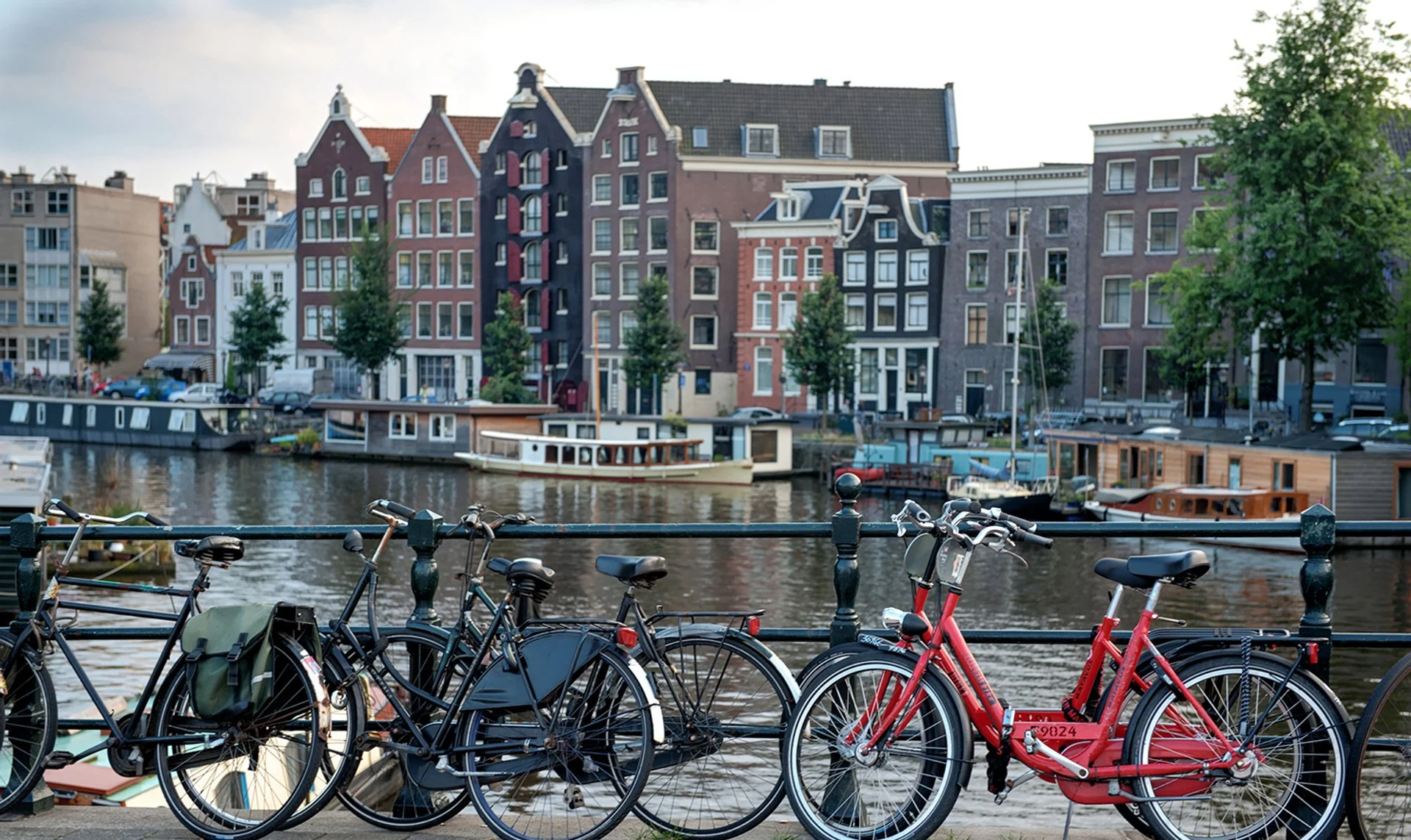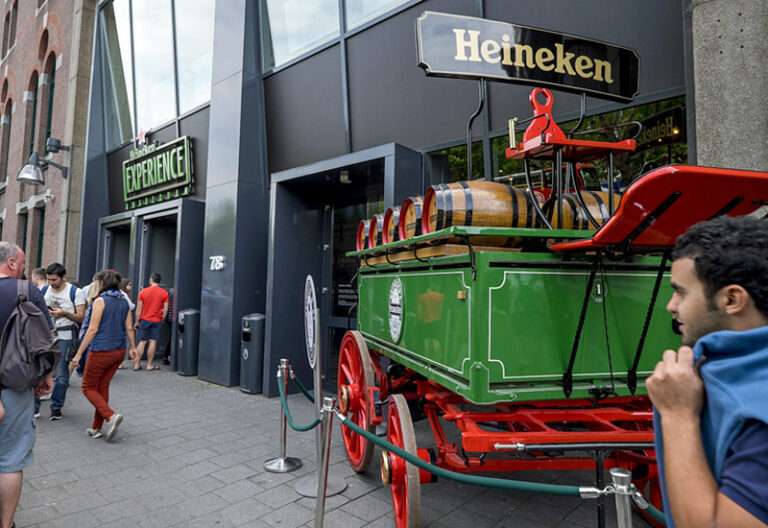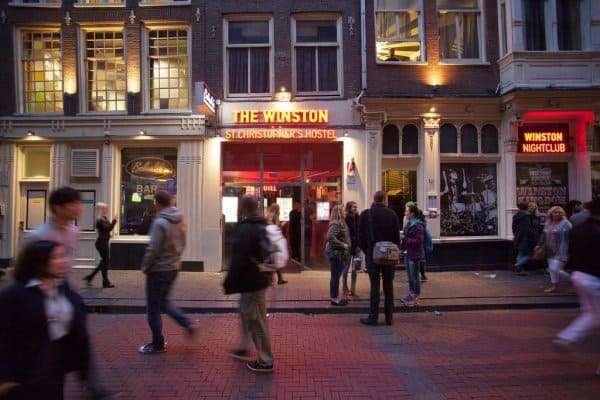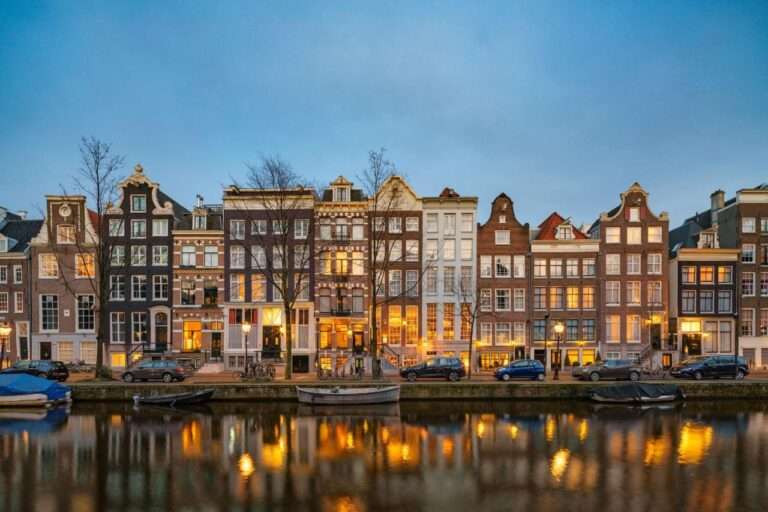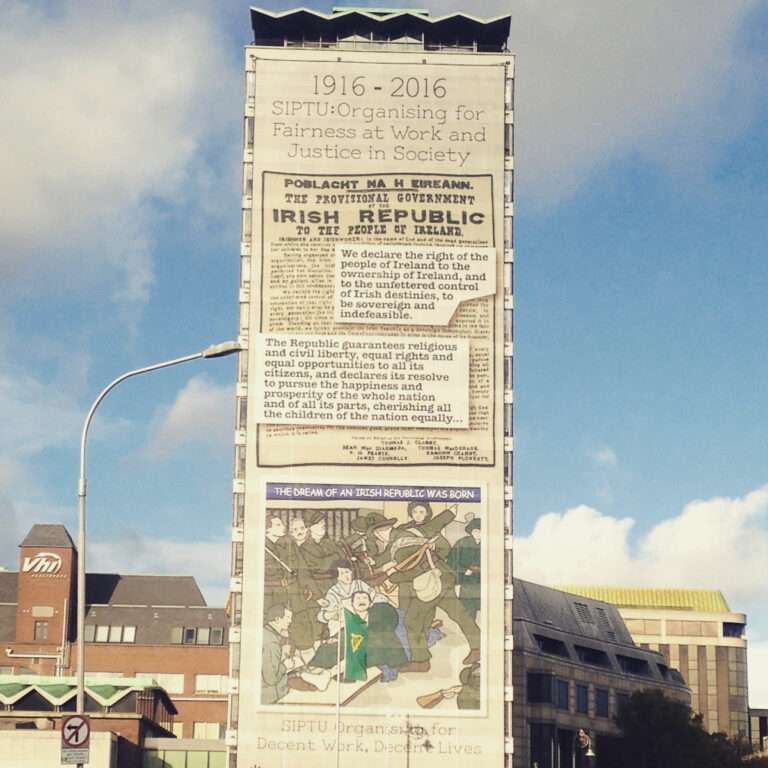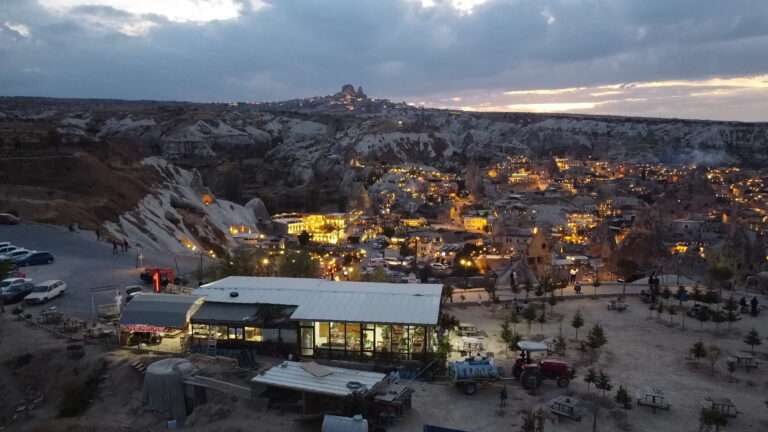The Netherlands is a dream destination for digital nomads. Known for its windmills, tulip fields, and canals, the Netherlands offers more than just Instagram-perfect scenes. Whether you’re looking to experience the artistic vibes of Amsterdam, the architecture of Rotterdam, or the charm of smaller cities like Utrecht or Leiden, this country has something to offer every kind of traveler. With a strong emphasis on work-life balance, an efficient public transportation system, and a thriving expat community, the Netherlands provides the perfect backdrop for remote work. Whether you’re just passing through or planning to stay awhile, this guide will help you navigate life as a digital nomad in the Netherlands, making sure you make the most of your time in this fascinating country.

Can I Work Remotely from the Netherlands?
Yes, you can work remotely from the Netherlands. The country is exceptionally well-suited for digital nomads, with a robust infrastructure that supports remote work across various sectors. High-speed internet is widely available throughout the country, even in more rural areas, ensuring that you stay connected no matter where you are. Moreover, the Netherlands is home to a large number of cafes, coworking spaces, and public libraries that cater to remote workers, providing comfortable and inspiring environments to boost your productivity.
The Dutch work culture also supports remote work, with many companies and organizations accustomed to flexible working arrangements. This progressive attitude toward work-life balance means that as a digital nomad, you’ll find it easy to integrate into the local scene, whether you’re working in a bustling city or a peaceful village. For more information, read this post on how to work remotely from another country.

Can I Be a Digital Nomad in the Netherlands?
Yes, the Netherlands is an ideal destination for digital nomads. The country offers modern urban living and access to nature, making it perfect for those who seek both productivity and relaxation. Cities like Amsterdam, Rotterdam, and Utrecht are not only cultural and economic hubs but also provide an array of services and amenities tailored to the needs of remote workers.
As a digital nomad in the Netherlands, you’ll benefit from the country’s excellent public transportation system, which makes it easy to explore different regions without the need for a car. The Netherlands also has a thriving expatriate community, which means you’ll have plenty of opportunities to connect with like-minded professionals through networking events, coworking spaces, and social groups.
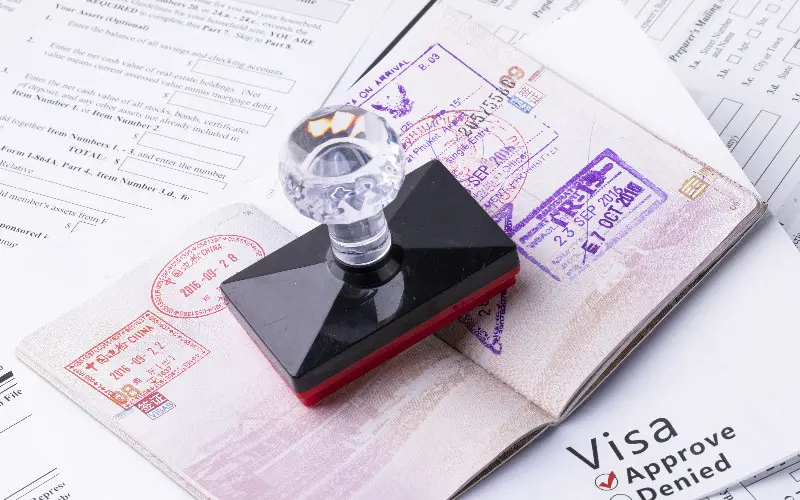
Does the Netherlands Have a Digital Nomad Visa?
The Netherlands does not currently offer a specific digital nomad visa. However, there are alternative visa options that might suit your needs if you wish to stay in the country for an extended period. Americans can look into the Dutch-American Friendship Treaty. For other nationalities, one such option is the Dutch Freelancer or Self-Employed Residence Permit, which is available to non-EU/EEA citizens who want to work as freelancers or entrepreneurs in the Netherlands. To qualify for this permit, you need to demonstrate that your business activities will benefit the Dutch economy, and you must meet specific criteria, including having sufficient funds and health insurance.
Also, if you are an EU/EEA or Swiss citizen, you don’t need a visa or residence permit to live and work in the Netherlands. You can stay in the country for as long as you like, provided you have a valid passport or ID card and sufficient means to support yourself.
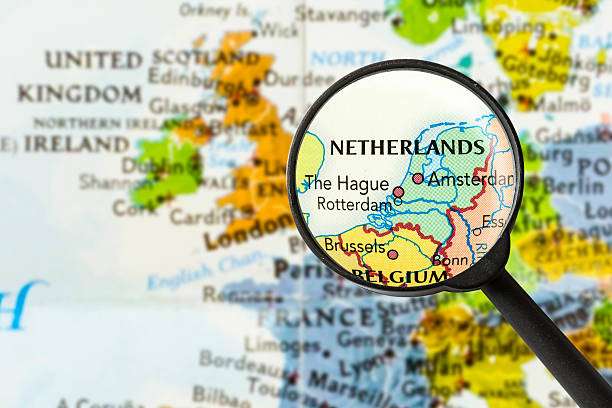
Where is the Netherlands Located?
The Netherlands is located in Northwestern Europe, bordered by Germany to the east, Belgium to the south, and the North Sea to the north and west. Despite its relatively small size, the Netherlands is one of the most densely populated countries in the world and plays a significant role in global trade, culture, and politics.
Its location makes the Netherlands an important gateway to Europe, with major ports like Rotterdam serving as key hubs for international commerce. The country’s flat landscape, characterized by canals, windmills, and tulip fields, adds to its unique charm and makes it easily navigable for travelers.
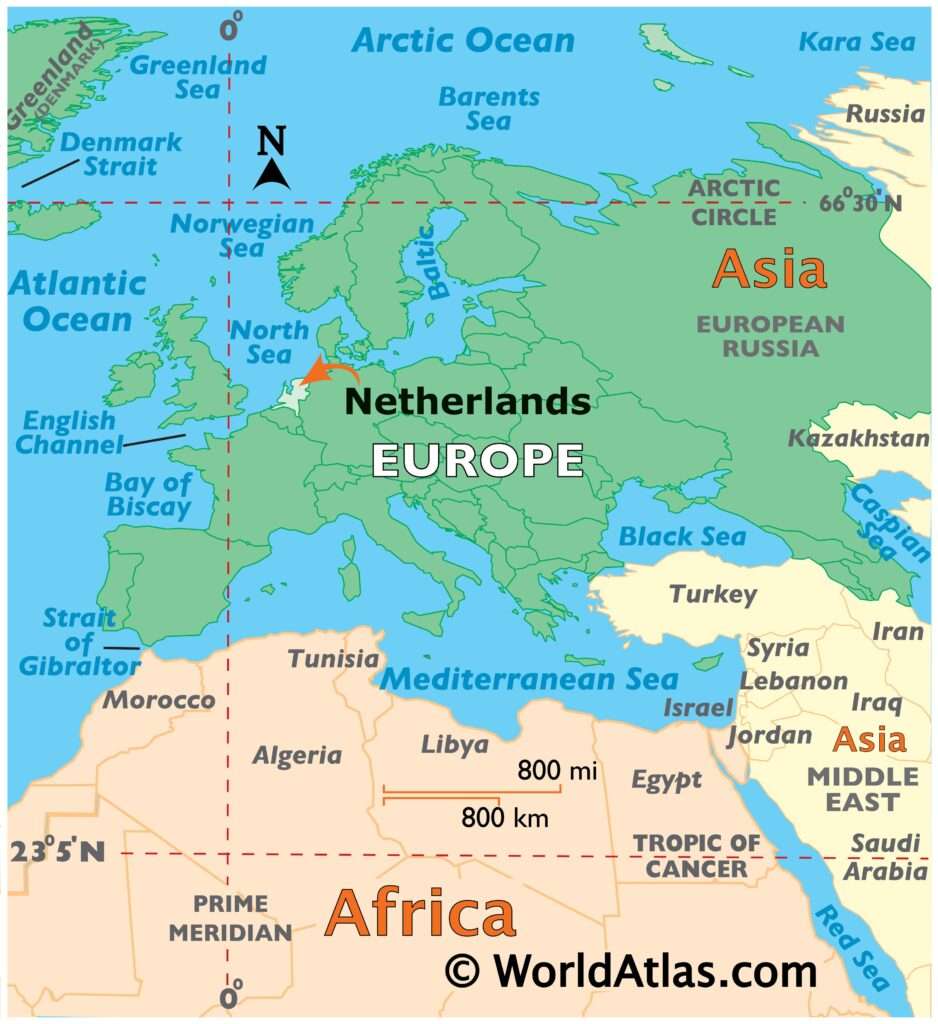
Is the Netherlands Part of Europe?
Yes, the Netherlands is an integral part of Europe. It is a founding member of the European Union (EU) and is also part of the Schengen Area, which allows for passport-free travel across many European countries. This means that once you’re in the Netherlands, you can easily travel to neighboring countries like Belgium, Germany, and France without the need for additional visas or border checks.
The Netherlands is also a member of the Eurozone, meaning it uses the euro as its official currency, further integrating it into the European economic and financial systems.
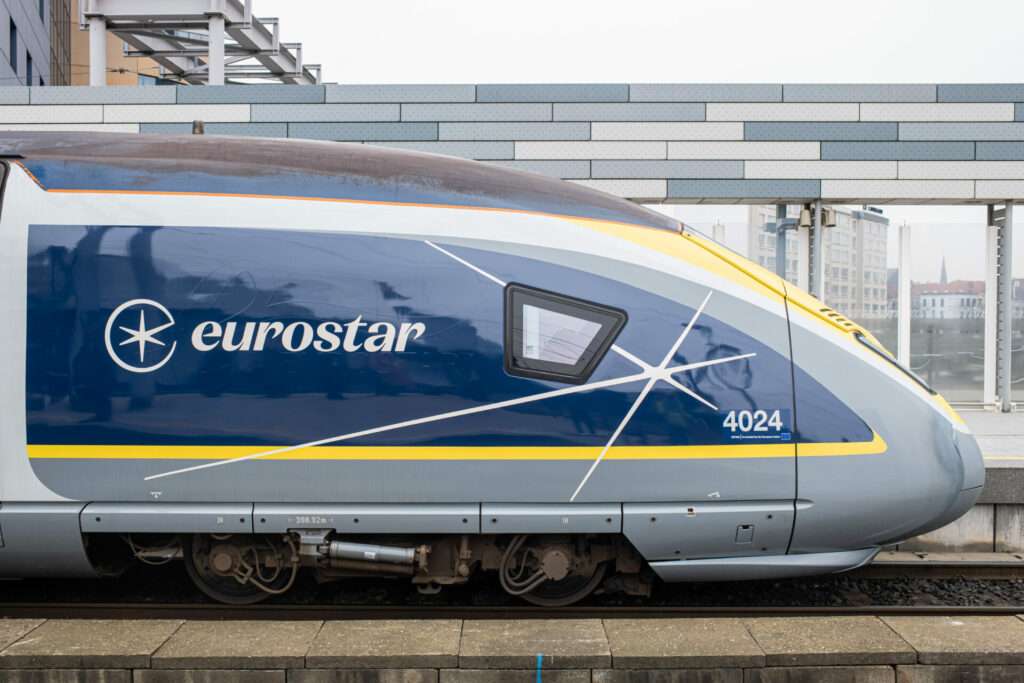
What is the Best Way to Get to the Netherlands from London?
There are several convenient ways to travel from London to the Netherlands, depending on your preferences for speed, comfort, and cost:
- Flight: Flying is the quickest way to get from London to the Netherlands, with several airlines offering direct flights from London’s airports (Heathrow, Gatwick, City, Luton, and Stansted) to Amsterdam Schiphol Airport. The flight takes about an hour, and Schiphol is well-connected to the rest of the country by train and bus. Book cheap flights to The Netherlands using CheapOair.
- Train: If you prefer a more scenic and environmentally friendly option, taking the Eurostar train from London St Pancras International to Amsterdam is a great choice. The journey takes about four hours, with direct services running several times a day. The train ride offers a comfortable experience with spacious seating, onboard amenities, and beautiful views of the European countryside.
- Ferry: For a more leisurely trip, you can take a ferry from Harwich International Port to the Hook of Holland, followed by a train or bus to your final destination. The ferry journey takes about seven hours, but overnight services with cabins are available, making it a unique and relaxing travel experience.
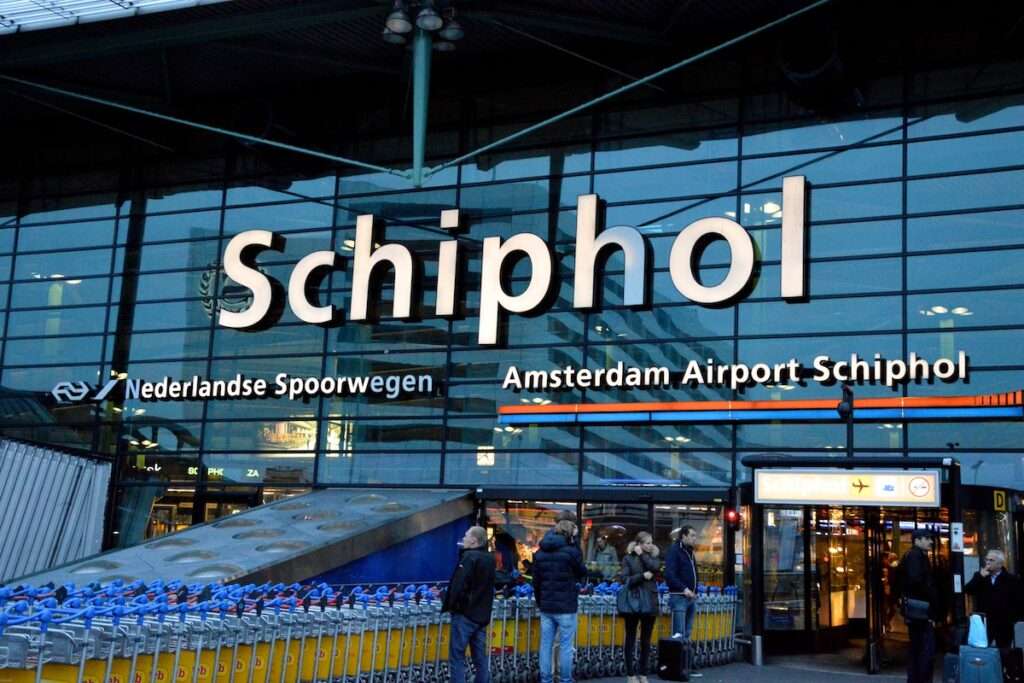
What’s the Closest Airport to the Netherlands?
The closest and most convenient airport for international travelers coming to the Netherlands is Amsterdam Schiphol Airport (AMS). Schiphol is one of the busiest airports in Europe, offering numerous direct flights to and from major cities worldwide. It is located approximately 9 kilometers (about 5.5 miles) southwest of Amsterdam’s city center and is well-connected to the rest of the country by an efficient network of trains, buses, and taxis.
For those traveling to other parts of the Netherlands, there are also smaller regional airports, such as Rotterdam The Hague Airport (RTM) and Eindhoven Airport (EIN), which offer flights to various European destinations.
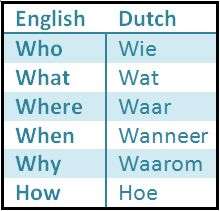
What Language is Spoken in the Netherlands?
The official language of the Netherlands is Dutch. Dutch is a Germanic language that is spoken by the majority of the population. However, English is widely spoken and understood, especially in urban areas, tourist destinations, and among the younger population. In fact, the Netherlands consistently ranks among the top countries in the world for English proficiency among non-native speakers.
In addition to Dutch and English, you might also encounter other languages like German and French, particularly in border regions or among expats and tourists.
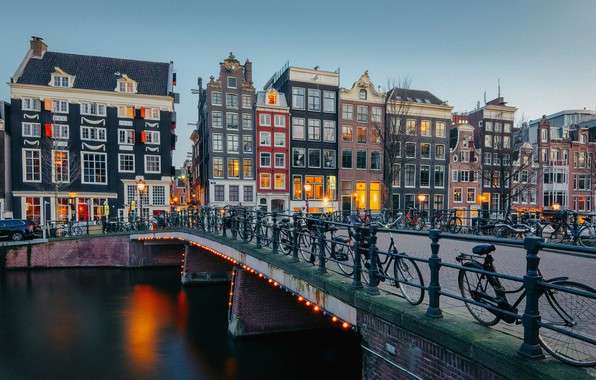
Is the Netherlands Worth Visiting for Digital Nomads?
The Netherlands is a country with a lot of history, culture, and natural beauty, making it a must-visit destination for travelers. From the canals of Amsterdam to the historic windmills of Kinderdijk, the vibrant tulip fields of Lisse, and the modern architecture of Rotterdam, the Netherlands offers something for everyone.
Beyond its iconic landmarks, the Netherlands is known for its progressive values, friendly locals, and high quality of life. Whether you’re interested in exploring world-class museums, cycling through scenic countryside, or experiencing Dutch festivals and coffee shops, you’ll find plenty to see and do in this country.
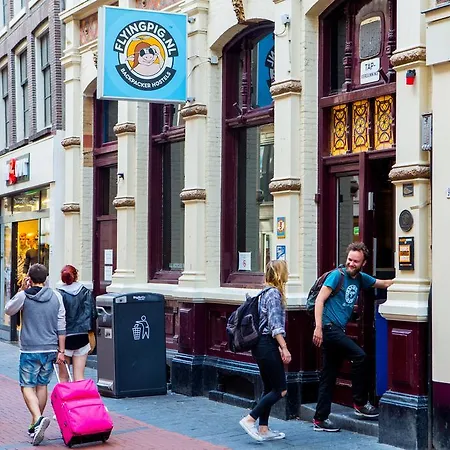
What is the Best Month to Visit the Netherlands?
The best time to visit the Netherlands largely depends on your preferences for weather and activities. However, spring (April to June) is often considered the most beautiful time to visit, particularly if you want to see the famous tulip fields in full bloom. During this period, the weather is mild, with average temperatures ranging from 10°C to 20°C (50°F to 68°F), making it perfect for outdoor activities and sightseeing.
Another great time to visit is autumn (September to November), when the summer crowds have diminished, and the landscapes are painted with vibrant fall colors. The weather during autumn is cool and comfortable, ideal for exploring cities and countryside alike.
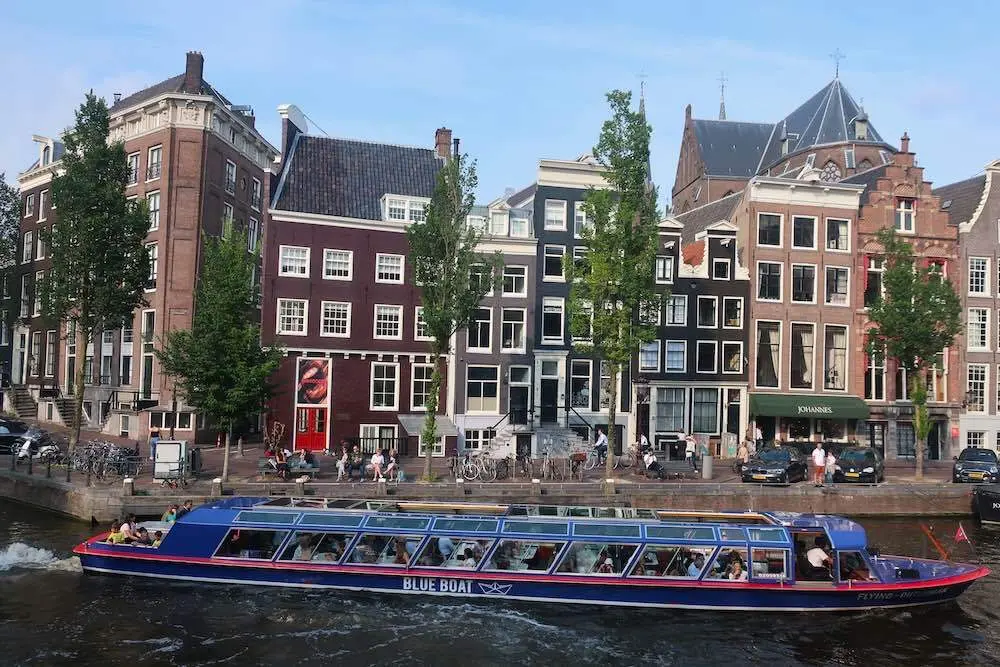
How Long Should Digital Nomads Stay in the Netherlands?
The ideal length of stay in the Netherlands depends on what you want to experience, but a stay of one to two weeks is generally recommended to get a good feel for the country. This allows enough time to explore major cities like Amsterdam, Rotterdam, and The Hague, as well as take day trips to smaller towns, national parks, and cultural sites.
If you’re a digital nomad planning to work while exploring, you might consider staying for a month or more. This gives you the flexibility to balance work with travel, allowing for deeper immersion into Dutch culture and lifestyle.
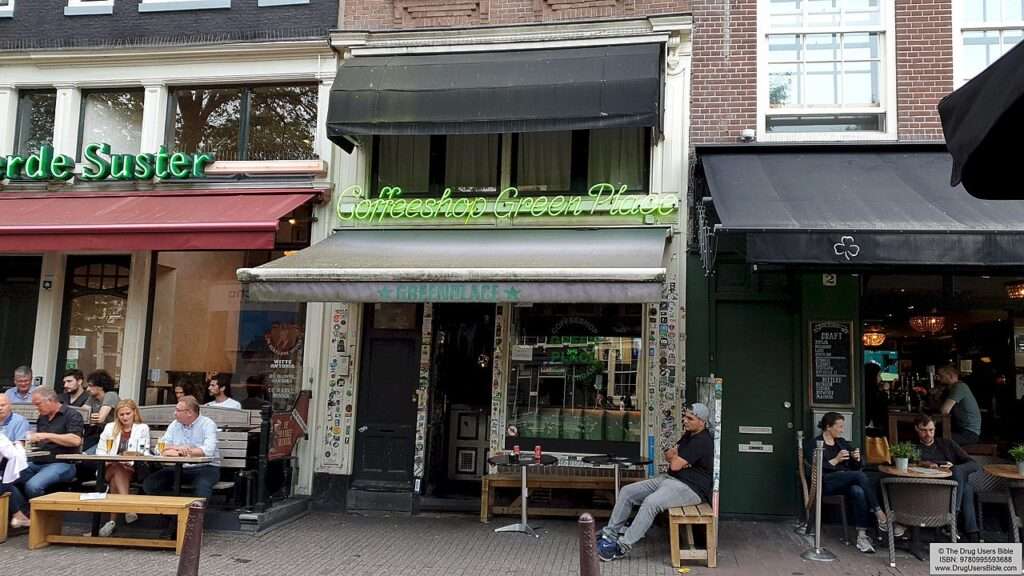
What is the Netherlands Weather Like?
The Netherlands has a moderate maritime climate, characterized by mild summers and cool winters. The weather can be unpredictable, with rain possible at any time of year, so it’s always a good idea to carry an umbrella or a rain jacket.
- Spring (March to May): Spring is one of the most beautiful times in the Netherlands, with blooming flowers and moderate temperatures ranging from 6°C to 15°C (43°F to 59°F). However, early spring can still be chilly, especially in the mornings and evenings.
- Summer (June to August): Summers in the Netherlands are generally mild, with average temperatures between 15°C and 25°C (59°F to 77°F). July and August are the warmest months, with occasional heatwaves, but temperatures rarely exceed 30°C (86°F). This is a popular time for outdoor activities and festivals.
- Autumn (September to November): Autumn brings cooler temperatures, ranging from 10°C to 18°C (50°F to 64°F) in September, gradually dropping as the season progresses. The fall foliage adds a beautiful backdrop to the countryside and cities.
- Winter (December to February): Winters in the Netherlands are cold but not extreme, with temperatures typically ranging from 0°C to 7°C (32°F to 45°F). Snow is possible but not common, and the short days and long nights give the cities a cozy, festive atmosphere.
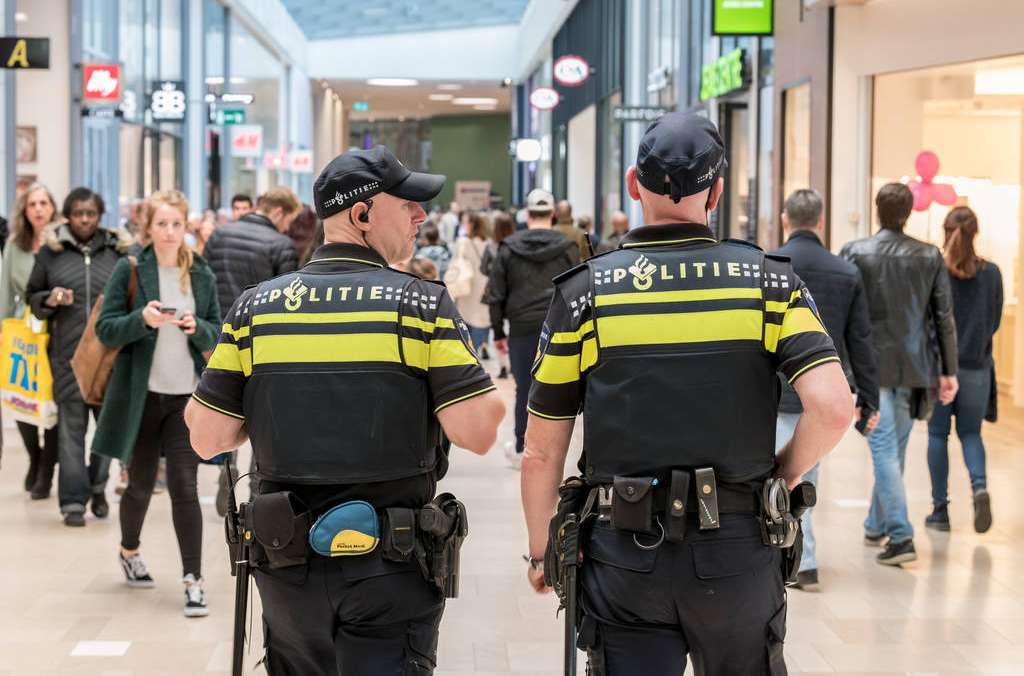
Is the Netherlands Safe for Digital Nomads?
Yes, the Netherlands is considered one of the safest countries in the world, making it an excellent choice for digital nomads, including solo female travelers. The crime rate is low, and the country is known for its friendly and welcoming locals. In cities, public transportation is safe and reliable, and you’ll find that most people are willing to help if you need directions or assistance.
As a solo female traveler, I haven’t experienced any safety issues in my many visits to The Netherlands. The country has a strong culture of gender equality, and women can feel safe traveling alone in most areas, day or night. Of course, as with any destination, it’s always wise to stay aware of your surroundings and take standard precautions, such as avoiding poorly lit areas at night and keeping your belongings secure.
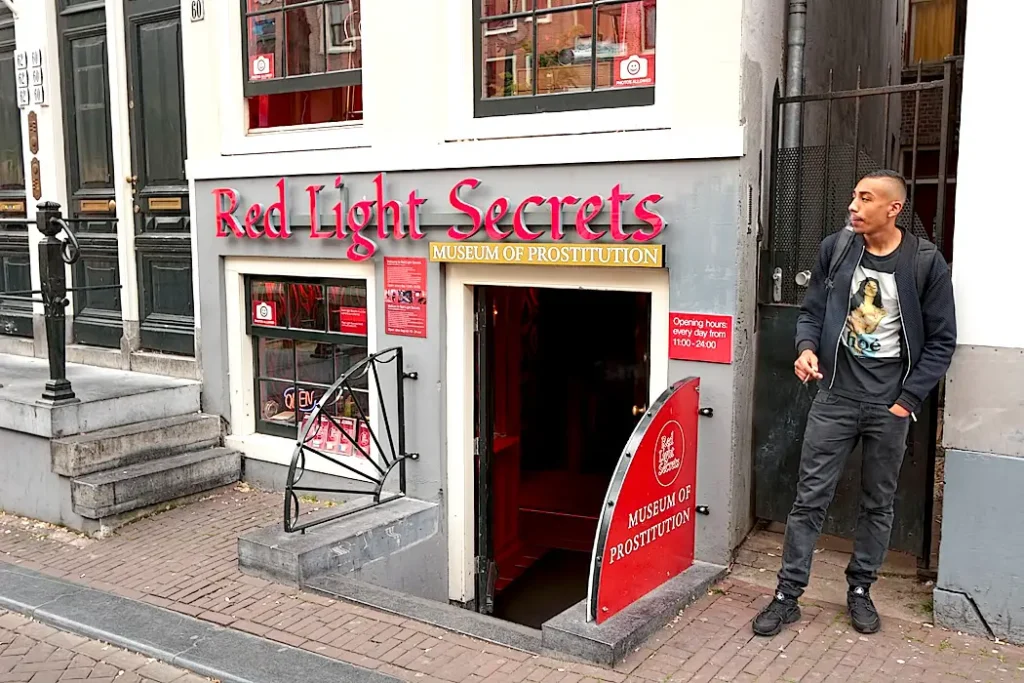
Is the Netherlands Expensive for Digital Nomads?
The Netherlands is generally considered an expensive destination, particularly in its major cities like Amsterdam, Rotterdam, and The Hague. However, the cost of living can vary significantly depending on your lifestyle, spending habits, and the area where you choose to stay.
- Accommodation: Housing costs are likely to be your biggest expense. In cities like Amsterdam, rental prices are high, with a one-bedroom apartment in the city center costing around €1,500 to €2,500 per month. If you’re on a budget, you might consider staying in a smaller town or suburban area, where rents are lower. Coliving spaces, hostels, and short-term rentals can also offer more affordable options.
- Food and Dining: Grocery prices in the Netherlands are comparable to other Western European countries. You can save money by shopping at local markets or budget supermarkets like Aldi and Lidl. Dining out, on the other hand, can be expensive, especially in touristy areas. A meal at a mid-range restaurant might cost between €15 to €30, while a coffee at a cafe typically costs around €3 to €5. For more budget-friendly options, consider exploring local eateries, street food stalls, or self-catering.
- Transportation: Public transportation in the Netherlands is efficient but not cheap. A single tram or bus ticket in cities like Amsterdam costs about €3.20, while a monthly public transport pass can set you back around €90 to €100. Biking is a popular and cost-effective way to get around, and many cities are extremely bike-friendly.
- Entertainment and Activities: Museums, cultural attractions, and tours can add up quickly, but there are also plenty of free or low-cost things to do, such as exploring parks, canals, and historic neighborhoods. You can also take advantage of discount passes like the I Amsterdam City Card, which provides free or discounted entry to many attractions.
Overall, while the Netherlands is on the pricier side, careful budgeting and making smart choices about where to live and how to spend can help you manage your costs effectively.

What Currency is Used in the Netherlands?
The official currency of the Netherlands is the euro (€). The euro is used throughout the Eurozone, making it convenient if you’re traveling to other European countries as well. Euros come in both coins and banknotes, with coins available in denominations of 1, 2, 5, 10, 20, and 50 cents, as well as €1 and €2. Banknotes are available in denominations of €5, €10, €20, €50, €100, €200, and €500, although the higher denominations are less commonly used.
Credit and debit cards are widely accepted in the Netherlands, especially in cities, but it’s always a good idea to carry some cash for small purchases, especially in rural areas or local markets where card payments may not be as common. ATMs are easily accessible throughout the country, and you can withdraw euros using your debit or credit card, though fees may apply depending on your bank.
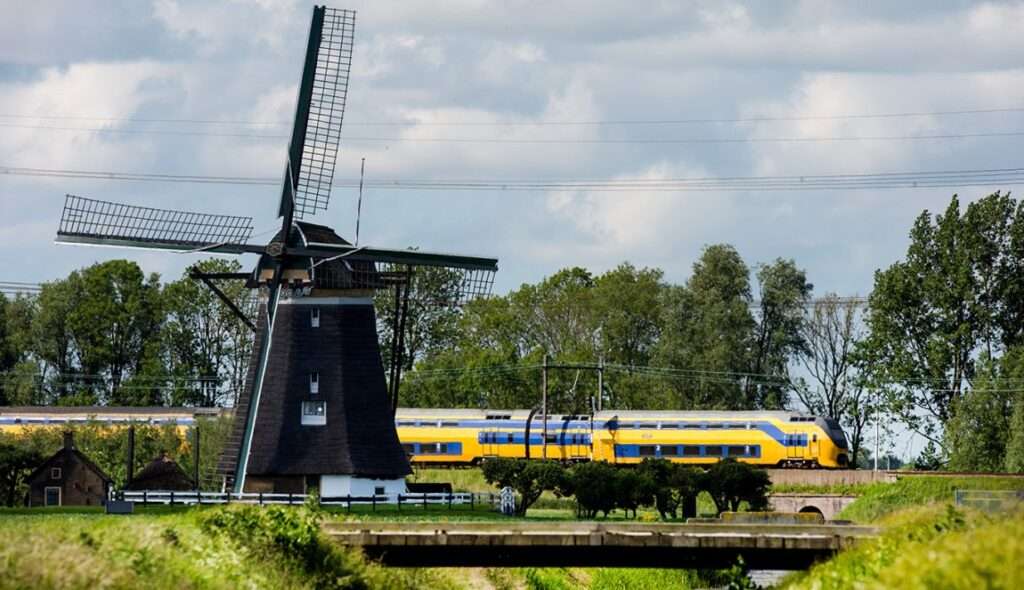
Intercity Travel: How to Get Around in the Netherlands
Getting around in the Netherlands is easy and efficient, thanks to the country’s excellent public transportation system and its compact size. Whether you’re navigating the bustling streets of Amsterdam or exploring smaller towns, you’ll find various transportation options to suit your needs.
- Public Transportation: The Netherlands boasts an extensive public transportation network that includes trains, trams, buses, and ferries. The OV-chipkaart is the key to the system—this rechargeable smart card can be used on all forms of public transport, making it easy to switch between different modes of travel. Trains are ideal for longer distances between cities, while trams and buses are perfect for getting around within cities. Ferries are commonly used in cities like Amsterdam to cross the IJ River.
- Biking: Cycling is an integral part of Dutch culture, and the country is famous for its bike-friendly infrastructure. Most cities have dedicated bike lanes, and you’ll find bike rentals to be very popular. Cycling is often the quickest and most enjoyable way to explore cities and towns, and it’s also a great way to experience the scenic countryside.
- Walking: Dutch cities are compact and pedestrian-friendly, making walking a great option for short distances. Many city centers are designed with pedestrians in mind, with plenty of cafes, shops, and attractions within walking distance.
- Taxis and Ride-Sharing: Taxis are available in most cities, but they can be expensive. Ride-sharing services like Uber operate in larger cities, offering a more convenient and often cheaper alternative to traditional taxis.
- Car Rentals: While renting a car is not necessary in cities due to the excellent public transport and cycling infrastructure, it can be useful if you plan to explore more remote areas or if you want the flexibility to travel at your own pace. However, be aware that parking can be expensive and challenging in city centers.
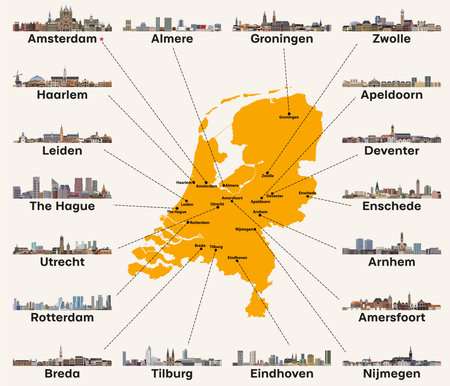
What Are the Best Areas to Stay in the Netherlands?
The best area to stay in the Netherlands depends on your interests, budget, and the type of experience you’re looking for. I love Amsterdam, but here are some other top areas to consider:
- Amsterdam: The capital city is a top choice for digital nomads due to its diverse culture, numerous coworking spaces, and a wide range of accommodation options. The Jordaan and De Pijp neighborhoods offer local charm and modern amenities, while the historic canal belt (Grachtengordel) is ideal for those who want to be in the middle of the action. For a quieter experience, consider staying in the Oud-West or Amsterdam Noord areas.
- Rotterdam: Known for its modern architecture and innovation, Rotterdam is a great choice for digital nomads who prefer a less touristy atmosphere. The city has a growing tech scene and plenty of coworking spaces. The Kop van Zuid and Delfshaven districts are popular areas to stay, offering a mix of modern and historic vibes.
- Utrecht: This university city offers a more laid-back atmosphere compared to Amsterdam, with beautiful canals, historic buildings, and a lively cultural scene. The city center is compact and walkable, making it easy to explore. The Museum Quarter and the area around Dom Tower are particularly appealing for their central locations and picturesque surroundings.
- The Hague: The political capital of the Netherlands, The Hague is known for its elegant architecture, embassies, and proximity to the North Sea coast. The city has a more formal feel compared to other Dutch cities but offers excellent amenities for digital nomads. The Statenkwartier and Zeeheldenkwartier neighborhoods are popular for their mix of residential and commercial spaces, as well as their proximity to the beach.
- Leiden: If you prefer a smaller city with a lot of history and a strong academic atmosphere, Leiden is a great option. Known as the birthplace of Rembrandt, Leiden offers a picturesque setting with its canals, historic buildings, and vibrant student life. The city center is ideal for those who want to be close to everything, while the outskirts offer more peaceful, suburban settings.
- Maastricht: Located in the southern part of the Netherlands, Maastricht offers both Dutch and Belgian influences. The city is known for its medieval architecture, cultural scene, and excellent food. The Wyck district and the Jekerkwartier are popular areas to stay, offering a mix of historic charm and modern amenities.
- Groningen: For those looking to experience the northern part of the Netherlands, Groningen is another university city with a strong focus on sustainability and innovation. The city has a youthful vibe and a compact center, making it easy to explore by foot or bike. The area around the Grote Markt and the Noorderplantsoen Park are popular with both locals and visitors.
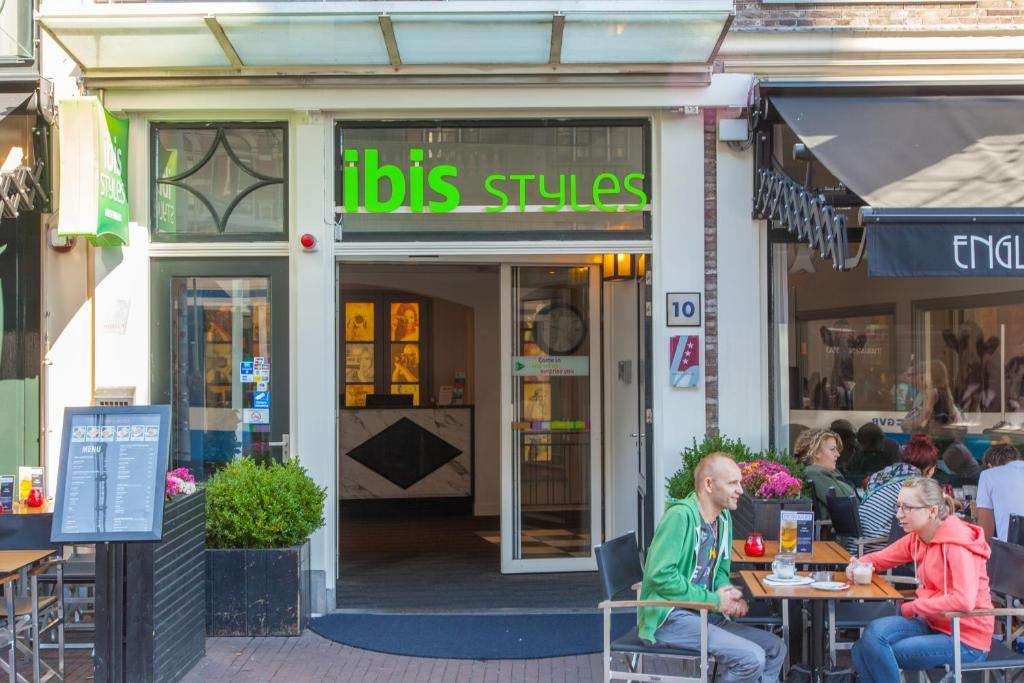
Accommodation Options for Digital Nomads in the Netherlands
When it comes to finding a place to stay, digital nomads in the Netherlands have a variety of options to suit different budgets and preferences.
- Short-Term Rentals: Platforms like VRBO offer a wide range of short-term rental options, from modern apartments in city centers to cozy cottages in the countryside. These rentals often come fully furnished and equipped with high-speed internet, making them ideal for digital nomads who need a home office setup. Keep in mind that prices can vary significantly depending on the location and time of year, with Amsterdam generally being the most expensive city.
- Serviced Apartments: For those who prefer a more hotel-like experience, serviced apartments are a great option. These accommodations typically include amenities like housekeeping, laundry services, and 24/7 security, along with the privacy and comfort of an apartment. Many serviced apartments also offer flexible lease terms, allowing you to stay for a few weeks or several months. Cities like Amsterdam, Rotterdam, and The Hague have a wide selection of serviced apartments catering to business travelers and digital nomads.
- Coliving Spaces: Coliving has become increasingly popular among digital nomads, offering a sense of community and networking opportunities. In the Netherlands, you can find coliving spaces that cater specifically to remote workers, with shared workspaces, communal kitchens, and social events. These spaces often attract a diverse group of professionals from around the world, providing a supportive environment for collaboration and socializing.
- Hostels: For budget-conscious digital nomads, hostels are an affordable and social accommodation option. Many hostels in the Netherlands offer private rooms in addition to dormitory-style accommodations, giving you the privacy you need while still being able to connect with fellow travelers. Look for hostels with good Wi-Fi, communal areas, and proximity to coworking spaces or cafes where you can work. If staying in Amsterdam, read this guide for more information about the best hostels in Amsterdam.
- Hotels: If you’re looking for a more traditional accommodation experience, hotels are widely available across the Netherlands. From budget-friendly options to luxury five-star properties, you’ll find a range of choices to suit your needs. Many hotels offer business centers, meeting rooms, and high-speed internet, making them suitable for short-term stays when you need to focus on work.
- Guesthouses and B&Bs: For a more personalized and homely experience, consider staying in a guesthouse or bed and breakfast. These accommodations are often family-run and provide a unique opportunity to experience Dutch hospitality. While they may not offer the same level of amenities as hotels or serviced apartments, they can be a charming and affordable option for digital nomads who prefer a quieter setting.
- University Accommodation: If you’re visiting the Netherlands during the summer months, you may be able to stay in university accommodation. Many Dutch universities rent out student housing during the academic break, offering affordable and centrally-located options. These accommodations are typically basic but functional, with access to communal kitchens and laundry facilities.

Food Options for Digital Nomads in the Netherlands
The Netherlands offers a diverse culinary scene that caters to all tastes and dietary preferences. Whether you’re looking for traditional Dutch cuisine, international flavors, or healthy options, you’ll find plenty of choices to keep you fueled throughout your workday.
- Traditional Dutch Food: No visit to the Netherlands is complete without trying some local specialties. Popular dishes include herring, stroopwafels, poffertjes, and bitterballen. Many cafes and restaurants serve these traditional foods, giving you a taste of Dutch culture. For a more immersive experience, visit a local market like the Albert Cuyp Market in Amsterdam or the Markthal in Rotterdam, where you can sample a variety of Dutch delicacies.
- Seafood: With its extensive coastline, the Netherlands is known for its fresh seafood. Dishes like kibbeling (fried fish), mussels, and eel are common in coastal areas. Seafood restaurants can be found in most Dutch cities, offering a range of options from casual fish and chips to upscale dining experiences.
- International Cuisine: The Netherlands is a melting pot of cultures, and this is reflected in its food scene. In cities like Amsterdam and Rotterdam, you’ll find a wide variety of international restaurants, including Indonesian, Surinamese, Turkish, Moroccan, and Italian. This diversity makes it easy to find something to suit your palate, whether you’re in the mood for a spicy curry, sushi, or a hearty pasta dish.
- Vegetarian and Vegan: The Netherlands is very accommodating to vegetarians and vegans, with many restaurants offering plant-based options. Amsterdam, in particular, has a thriving vegan scene, with numerous cafes and restaurants dedicated to plant-based cuisine. Even traditional Dutch dishes like stamppot can often be found in vegetarian versions.
- Cafes and Bakeries: Dutch cafes and bakeries are perfect for a quick bite or a relaxed meal while you work. Many cafes offer free Wi-Fi, making them popular spots for digital nomads. In addition to coffee and pastries, you’ll find a variety of sandwiches, salads, and soups on the menu. Bakeries are also a great place to try Dutch treats like appeltaart (apple pie) and gevulde koek (almond-filled pastry).
- Street Food: Street food is popular in the Netherlands, especially in cities like Amsterdam where food trucks and market stalls offer quick and affordable meals. Common street foods include stroopwafels, fries with various toppings, and broodje haring (herring sandwich). Food markets like Foodhallen in Amsterdam and Fenix Food Factory in Rotterdam are great places to explore a variety of street food options.
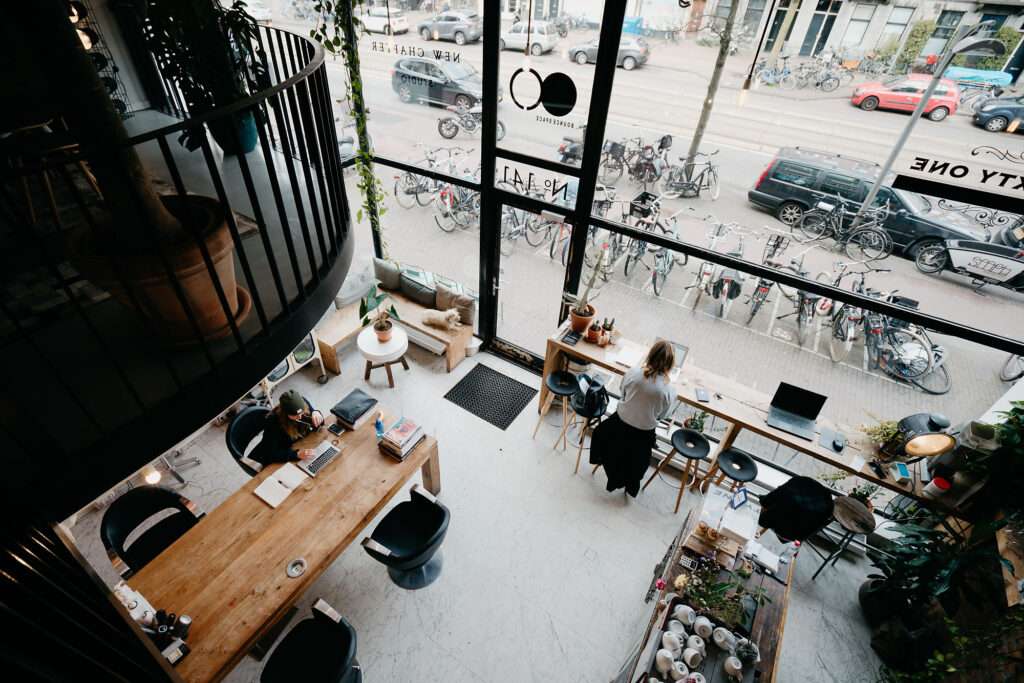
Coworking Spaces in the Netherlands
Finding a productive workspace is key to being a successful digital nomad, and the Netherlands offers a wide range of coworking spaces to meet your needs.
- Amsterdam: As the capital city, Amsterdam has a coworking scene with spaces catering to different industries and work styles. Whether you’re looking for a quiet, focused environment or a more social atmosphere, you’ll find coworking spaces like WeWork, Spaces, and The Social Hub, each offering different amenities. Many spaces also host events and workshops, providing opportunities for networking and skill development.
- Rotterdam: Rotterdam’s coworking spaces reflect the city’s innovative and creative spirit. Spaces like Het Industriegebouw and CIC Rotterdam are popular among entrepreneurs, freelancers, and startups. These spaces often feature modern design, high-speed internet, and access to meeting rooms and event spaces. Rotterdam is also home to a growing tech community, making it an exciting place to work for digital nomads in the tech industry.
- Utrecht: Utrecht offers a more laid-back coworking environment compared to Amsterdam and Rotterdam. Spaces like Seats2meet and Mindspace cater to a diverse community of remote workers, from freelancers to corporate teams. Utrecht’s central location and excellent public transportation make it a convenient base for digital nomads who want to explore other parts of the Netherlands.
- The Hague: The Hague is known for its international community, and its coworking spaces reflect this diversity. Spaces like Apollo 14 and Impact City offer a professional environment with a focus on sustainability and social impact. The Hague is also home to many international organizations and NGOs, making it an ideal location for digital nomads working in international relations, law, or social entrepreneurship.
- Other Cities: Smaller cities like Eindhoven, Haarlem, and Groningen also offer coworking spaces, though the selection may be more limited. These cities can be a great choice for digital nomads looking for a quieter environment with lower living costs, while still having access to essential amenities.
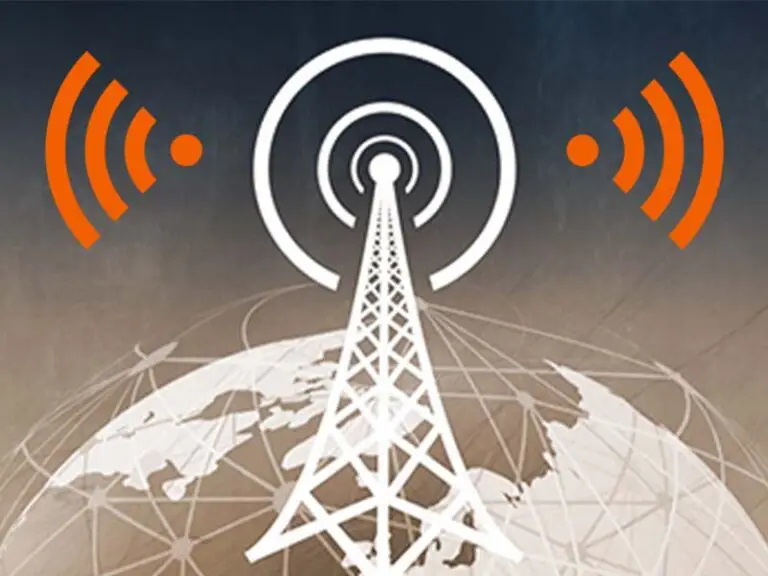
Internet and Connectivity in the Netherlands
The Netherlands is known for its excellent internet infrastructure, making it an ideal destination for digital nomads who rely on reliable and fast internet for work.
- Internet Speeds: The Netherlands consistently ranks high in global internet speed rankings, with both urban and rural areas benefiting from high-speed broadband. In major cities, fiber-optic connections are common, providing speeds of up to 1 Gbps. Even in more remote areas, you can expect stable and fast internet connections.
- Mobile Data: Mobile networks in the Netherlands are also top-notch, with 4G coverage available across the country and 5G being rolled out in major cities. If you’re working on the go, you can easily stay connected using mobile data. Dutch mobile providers like KPN, Vodafone, and T-Mobile offer a range of data plans, including prepaid SIM cards and eSIM options, which are convenient for short-term visitors.
- Public Wi-Fi: Public Wi-Fi is widely available in the Netherlands, especially in cafes, restaurants, libraries, and public transportation hubs. While public Wi-Fi can be convenient, it’s important to use a VPN to protect your data when connecting to unsecured networks.

Tips for Digital Nomads in the Netherlands
To make the most of your time in the Netherlands as a digital nomad, here are some additional tips to keep in mind:
- Language: While Dutch is the official language, English is widely spoken, especially in major cities. Most Dutch people are fluent in English, so you shouldn’t have any trouble communicating. However, learning a few basic Dutch phrases can go a long way in making a good impression and navigating daily life. Rosetta Stone is an option if you want to learn Dutch.
- Work-Life Balance: The Dutch value work-life balance, and this is reflected in their work culture. Many businesses close early in the evening, and weekends are often reserved for leisure activities. As a digital nomad, it’s important to embrace this balance and make time for relaxation and exploration.
- Networking: The Netherlands has a vibrant startup scene and offers plenty of opportunities for networking. Attend industry events, meetups, and coworking space events to connect with other professionals and expand your network. LinkedIn is also widely used in the Netherlands, so be sure to keep your profile updated and reach out to potential contacts.
- Visas and Permits: If you’re an EU/EEA citizen, you don’t need a visa to live and work in the Netherlands. Non-EU/EEA citizens may need a visa or residence permit, depending on the length of their stay and the type of work they do. The Netherlands offers various visa options for freelancers, entrepreneurs, and remote workers, so it’s worth researching the requirements before you arrive.
- Health Insurance: Health insurance is mandatory in the Netherlands. If you’re staying long-term, you’ll need to sign up for Dutch health insurance. For shorter stays, check if your current health insurance covers you abroad or consider getting travel insurance that includes health coverage.
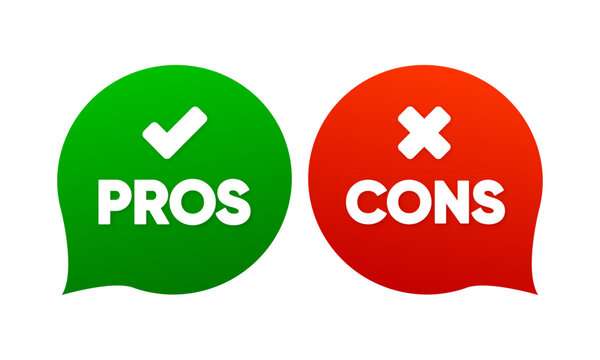
Pros and Cons of Being a Digital Nomad in the Netherlands
| Pros | Cons |
|---|---|
| Excellent Internet Infrastructure: The Netherlands boasts fast, reliable internet, ideal for remote work. | High Cost of Living: Cities like Amsterdam and Rotterdam can be expensive, especially in terms of rent and dining. |
| Coworking Spaces Abound: Numerous coworking spaces cater to digital nomads, fostering collaboration and productivity. | Housing Shortage: Finding affordable short-term rental housing can be challenging, especially in larger cities. |
| Work-Life Balance Culture: The Dutch prioritize work-life balance, making it easy to fit in with the local culture. | Strict Residency and Visa Regulations: Digital nomads may face challenges securing long-term visas without employment sponsorship. |
| Proximity to Europe: Centrally located, making it easy to travel to neighboring countries for work and leisure. | Weather: The Netherlands has a reputation for rainy, grey weather, which might be a drawback for some. |
| Fluent in English: Most locals speak fluent English, making communication easy for non-Dutch speakers. | Limited Outdoor Spaces in Cities: While there are parks, some cities like Amsterdam can feel crowded and lack nature. |
| Vibrant Expat and Nomad Community: The Netherlands, particularly Amsterdam, attracts a wide array of expats and digital nomads. | Tax Obligations: Depending on your nationality and length of stay, tax obligations could become complicated. |
| Cultural Diversity and Open-mindedness: The Dutch are known for their tolerance and multiculturalism, making it easier to fit in. | Overtourism: Popular cities like Amsterdam are often overcrowded with tourists, which can impact day-to-day living. |
| Public Transportation: A well-connected public transportation system makes getting around cities and the country easy. | Limited Business Hours: Shops and restaurants may close earlier than what some nomads from other countries are used to. |

Frequently Asked Questions About Being a Digital Nomad in the Netherlands
Is it easy to find coworking spaces in the Netherlands?
Yes, coworking spaces are abundant in major cities like Amsterdam, Rotterdam, and Utrecht. They range from high-end facilities to more budget-friendly options, offering amenities such as high-speed internet and meeting rooms.
What’s the cost of living like for digital nomads in the Netherlands?
Living in the Netherlands can be expensive, particularly in cities. Expect higher costs for accommodation and dining. Renting a one-bedroom apartment in the city center can range from €1,500 to €2,500 per month. Public transport is also costly, but biking is a popular and affordable alternative.
Are there good internet connections available throughout the Netherlands?
Yes, internet connectivity is excellent with high-speed internet widely available. Most coworking spaces, cafes, and accommodations provide reliable Wi-Fi, and mobile data services are robust.
What are the visa requirements for digital nomads in the Netherlands?
The Netherlands does not have a specific digital nomad visa. Digital nomads can stay for up to 90 days on a Schengen visa. For longer stays, different visas or residence permits may be required.
What is the healthcare system like for digital nomads in the Netherlands?
The Netherlands has a high-quality healthcare system. While short-term visitors are covered by their travel insurance, digital nomads planning to stay longer should consider obtaining Dutch health insurance. Health services are excellent, with both public and private options available.
Can I open a bank account in the Netherlands as a digital nomad?
Yes, you can open a bank account in the Netherlands. You’ll need a valid passport, proof of address, and sometimes proof of employment or income. Many banks also offer online banking services, making it easier to manage your finances remotely.
Are there language barriers in the Netherlands?
While Dutch is the official language, most Dutch people speak excellent English, especially in larger cities and tourist areas. You’ll find that navigating daily life and work will be manageable even if you don’t speak Dutch.
What are the best ways to network with other digital nomads in the Netherlands?
Joining local coworking spaces, attending tech and digital nomad meetups, and participating in expat groups on social media are great ways to connect with other digital nomads. Cities like Amsterdam host frequent networking events and social gatherings.
What should I know about the cultural norms and etiquette in the Netherlands?
The Dutch are known for their directness and straightforward communication. Punctuality is highly valued, and it’s customary to greet with a handshake. The Dutch also appreciate a good work-life balance and a casual but respectful approach to business and social interactions.
What are some popular cities for digital nomads in the Netherlands?
Amsterdam is the most popular due to its vibrant culture and extensive coworking spaces. Rotterdam is known for its modern vibe and innovation. Utrecht offers a charming and more relaxed environment, while The Hague provides a blend of business and leisure with its coastal appeal.
Is public transportation reliable in the Netherlands?
Yes, public transportation is highly reliable and efficient. The Netherlands has an extensive network of trains, trams, buses, and ferries that make getting around easy. The OV-chipkaart is used for seamless travel across different modes of transport.
What are the safety considerations for digital nomads in the Netherlands?
The Netherlands is generally very safe. Crime rates are low, and the country is known for its high quality of life. Common sense precautions should be observed, such as keeping an eye on your belongings and avoiding poorly lit areas at night. Solo female travelers will find the country particularly safe, with a strong emphasis on gender equality and low levels of street harassment.
What should I know about the Dutch work culture?
Dutch work culture is characterized by its focus on efficiency and work-life balance. The work environment is often informal, with a flat organizational structure that promotes open communication. Punctuality is important, and there is a strong emphasis on achieving results while respecting personal time.
Can I find good food options in the Netherlands?
Yes, the Netherlands offers a diverse food scene. You’ll find everything from traditional Dutch dishes like stroopwafels and herring to international cuisine. Cities like Amsterdam and Rotterdam boast a wide range of dining options, including restaurants, street food stalls, and cafes catering to various tastes and dietary preferences.

Final Thoughts on Being a Digital Nomad in the Netherlands
The Netherlands is an ideal destination for digital nomads. With its high quality of life, excellent infrastructure, and welcoming atmosphere, you’ll find everything you need to be productive and enjoy your time in this beautiful country. Whether you’re based in a city or a quiet village, the Netherlands provides endless opportunities for exploration, networking, and personal growth.
Safe Travels!
